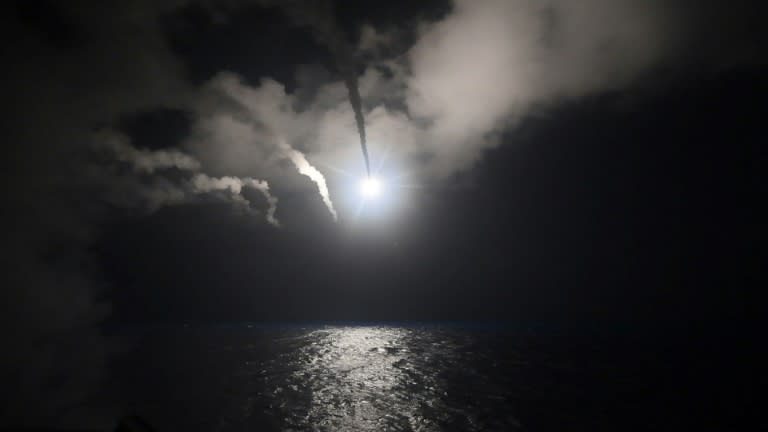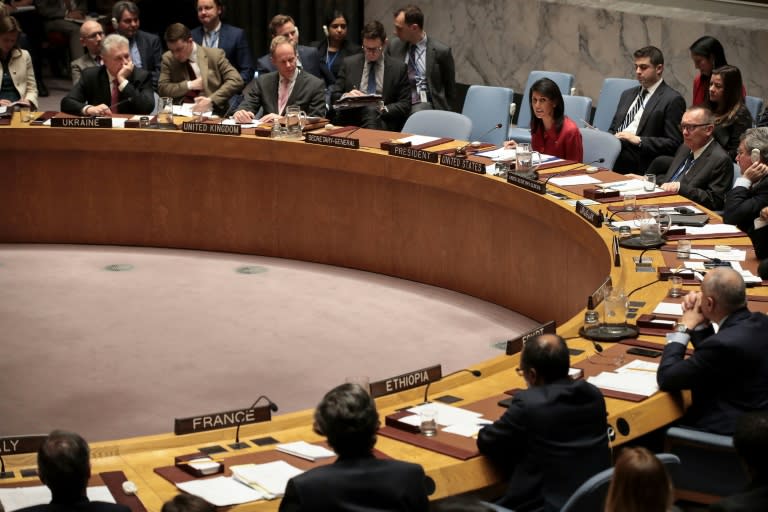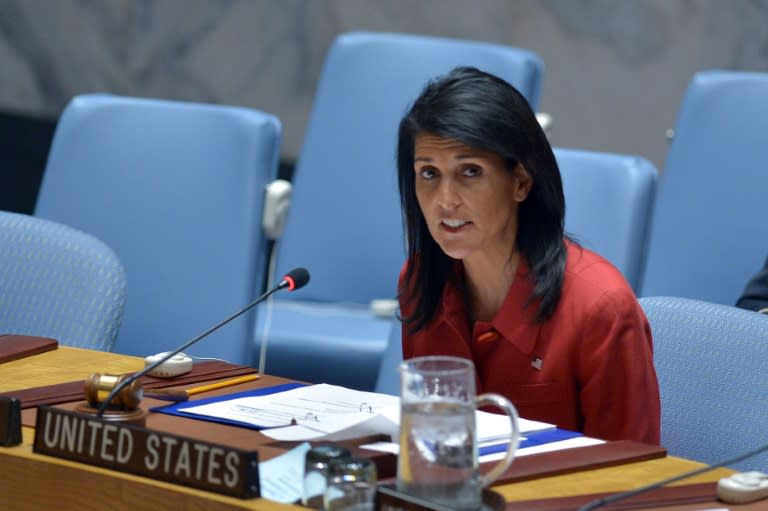Trump strikes Syria but no plan yet to force Assad out
Donald Trump's cruise missile strike on a Syrian air base drags Washington deeper into the country's tragedy but does not mark a new strategy to oust Bashar al-Assad by force. The new US president has been an outspoken opponent of US military intervention in Middle East conflicts and until this week, his administration had insisted that removing the Syrian strongman was not a priority. But Assad's alleged use of a banned nerve agent to massacre scores of civilians moved Trump to act, which in turn encouraged those who have long hoped that the United States would help depose him. They may well be disappointed. Trump's cautious chief diplomat, Secretary of State Rex Tillerson, was quick to pour cold water on the idea that the cruise missile salvo heralded a change in strategy. "I would not in any way attempt to extrapolate that to a change in our policy or our posture relative to our military activities in Syria today. There's been no change in that status," Tillerson said. Nevertheless, he added, Washington would support the UN-led negotiations "to resolve Syria's future in terms of its governance structure. "And that ultimately, in our view, will lead to a resolution of Bashar al-Assad's departure," he said. - Regime overthrow - James Jeffrey, who held senior national security positions under former president George W. Bush and advised Tillerson when the secretary was head of oil giant ExxonMobil, does not see a change in tack. "I think the administration clearly is in a different place with Assad than it was a week ago, but I don't think its primary intent is to use military force to directly overthrow this regime," Jeffrey said. But could the strike hasten Assad's fall by forcing him or his backers Russia and Iran to take the UN-mediated effort to negotiate a political solution to the civil war more seriously? The idea is not new. Former US president Barack Obama famously backed away from a threat to punish Assad's chemical weapons use in 2013, agreeing instead to allow him to surrender his arsenal. It now seems clear that the Syrian autocrat cheated on that deal and kept at least some of his banned nerve agents -- as well as carrying out frequent attacks with mixed-use substances like chlorine. In June last year, dozens of dissident US diplomats signed a "dissent cable" protesting Obama's policy and urging "a judicious use of stand-off and air weapons" to get Assad's attention. Then secretary of state John Kerry was loyal to Obama in public but has let it be known that he sympathized with the view of his colleagues, feeling US action might force Assad to the table. Thursday night's cruise missile attack was exactly the kind of raid the diplomats wanted. So might Assad now see the UN peace track in Geneva as a way out of the conflict? - Punishment strikes - Observers say that even if Assad believes he can hang on without seriously engaging in the peace process, Russia may be running out of patience with him, especially after the latest atrocity. Andrew Tabler, a veteran regional expert who founded Syria's first English-language news magazine and is now a fellow of the Washington Institute for Near East Policy, thinks so. "In a way the strikes are not necessarily a bad thing for Russia," he told reporters. "Russia's had a very hard time getting president Assad to come to the negotiating table in any kind of meaningful way." If Washington remains prepared to punish any further chemical strikes -- as US ambassador to the UN Nikki Haley insists is the case -- Assad may back down and negotiate. "How you get there, though, is the real question," Tabler added, suggesting that Tillerson's planned trip to Moscow next week could be key to turning the strikes into a strategy. Russia has accused Washington of violating international law by attacking Assad's air base, but US officials argue they are covered by a 2013 UN Security Council resolution. Under UNSCR 2118, passed in September 2013, Assad agreed to surrender his declared stockpile of chemical arms and to abide by the international convention banning their use. "The question is: Can you get Assad off of this course where he thinks that the only solution to the war is a military solution, that there is a political solution?" Tabler said. "I think you can, but I think it's going to take a strategy that has to include the likelihood that the regime could use strategic weapons again in the future and that an international response would have to be looming." Any new strategy, just like Obama's before it, will need Russia's support -- reluctant or otherwise -- and the key to that may be Tillerson's Moscow talks with President Vladimir Putin next week. "If the Russians don't cancel the visit, and I hope they don't, that will be a sign that they're willing to live with this strike," Jeffrey suggested.





